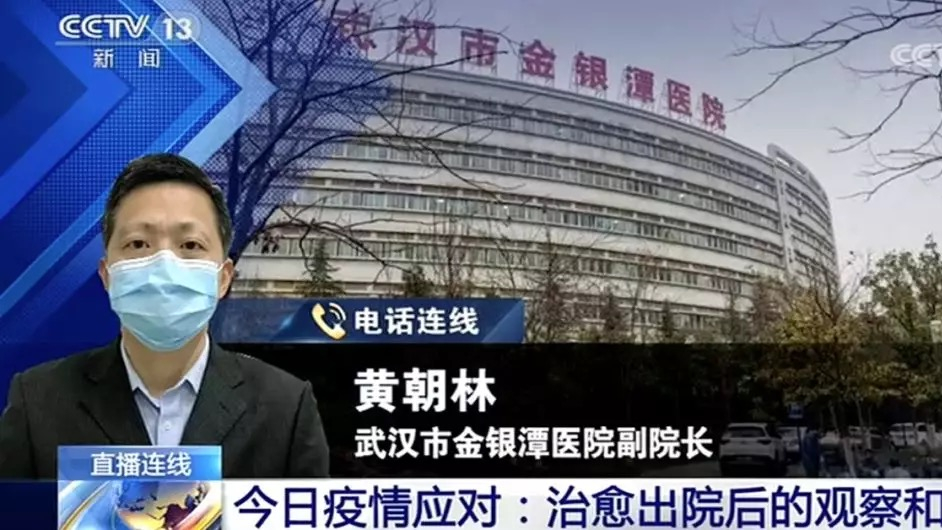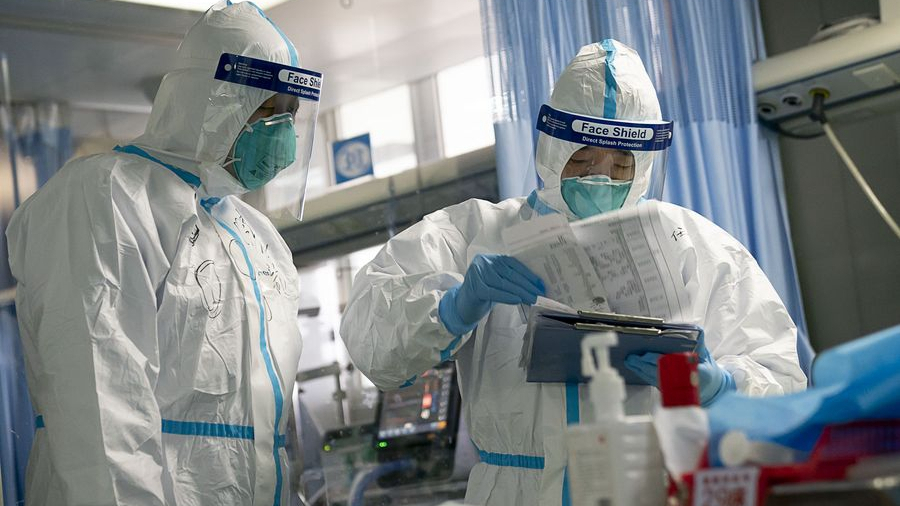
It has been eleven days after Huang Chaolin, the deputy dean of Wuhan Jinyintan Hospital, recovered from the novel coronavirus disease (COVID-19). The hospital he worked for is the first "battlefield" in Wuhan, the epicenter of the outbreak, to receive severely and critically ill patients.
"Looking back, I probably got infected on my way to the office after I took off the protective clothing and mask in the outpatient ward on January 10," Huang said.
Along the way, he was recognized by a patient's daughter and her husband, who knelt down to him to express their gratitude for saving their parent's life.
Huang helped them up in a hurry and talked to them about the patient's update, but all of them didn't wear masks during their conversation. Then three days later, the couple were diagnosed with COVID-19.
In Huang's mind, this could be his only possible exposure to the novel coronavirus.
The nucleic acid test on January 22 suggested he was infected with the virus, and the later CT scan confirmed the result. After delegating tasks, Huang was arranged to receive treatment in the isolation ward of his own hospital.
A man's battle against disease
Huang had already developed severe symptoms when he was admitted to hospital on January 23. It was on the same day that he signed his name on a clinical trial informed consent form to test the effectiveness and safety of an HIV drug against COVID-19.
Things didn't go well in early treatment. "I had difficulty breathing, sometimes it felt like I coughed my lungs out," Huang recalled. Meanwhile the side effects of the HIV drug, including diarrhea, vomiting, and gastrointestinal disorders, also came to him.
Expert teams in the hospital then treated him with hormone therapy and gave him the nasal cannula, a device used to deliver supplemental oxygen or increased airflow to a patient or person in need of respiratory help, to relieve his symptoms.

Doctors are checking patients' treatment records /CGTN
Doctors are checking patients' treatment records /CGTN
There's no specific drug for the disease thus far. Antiviral medications are sometimes applied to reduce symptoms, but are not effective for everyone.
According to Peng Zhiyong, director at Zhongnan Hospital of Wuhan University, the treatment they gave severely ill patients is just helpful for relieving symptoms.
"We help them to maintain body functions, but most recovered patients rely on their own immunity to wipe out the virus," Peng said.
As a survivor and a doctor
Luckily, Huang has recovered and was discharged from hospital after two nucleic acid tests showing negative results on February 2 and February 4.
During a phone call with CCTV on Thursday, Huang offered several suggestions based on a recovered doctor.
Huang said patients who were discharged from hospitals should strictly follow separated quarantine requirements, and not have close contact with people. Considering that the patients' immunity were weakened, separated quarantine can reduce the possibility of further viral or bacterial infections.
What's more, wearing a mask, washing one's hands frequently, and keeping rooms ventilated should be kept in mind. Enough sleeping hours and dietary supplements also play a vital role, Huang added.